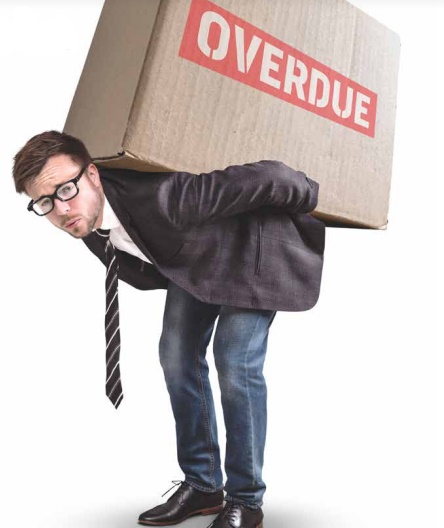The past few months have been tough—and if you haven’t been able to keep up with your monthly payments, it’s understandable. However, it is essential to start taking steps right now to eliminate tardy payments and any penalties that come along with them. Here are some tips to ditch delinquent payments!
Know the consequences of delinquent payments
If you don’t make payments on time, you will likely be charged late fees. On top of this, your interest rate may go up and your credit score may be neg-
actively affected. Additionally, if you are delinquent paying for utilities or other services, you may lose access to them. In reference to late tax payments, you may also be subject to late fees, interest charges and other possible penalties.
Avoid late credit card and other payments
Put autopay into place. Autopay is enabled when you authorize your credit
card issuer or other creditor to automatically charge payments to your card or deduct payments from your checking account on a certain date. If you opt to do this, be sure to pay the full amount each month to avoid paying interest.
Check your bank balance
Whichever payment option you choose, remember to have enough funds in your bank account. Otherwise, you could incur additional fees such as an overdraft fee and/or a late fee if there are insufficient funds in your account.
Prioritize payments
If you have to choose which payments to make, go with the highest interest bill first—keeping in mind that you should pay for all utilities and “essentials” first. Delinquent credit card payments often lead to a late payment fee and will likely affect your credit scores. Late payments can stay on your credit reports for up to seven years. Keep all of this in mind when prioritizing payments.
Set payment reminders
Relying on your memory to make on-time payments is not a good strategy. Try setting up digital calendar reminders on your phone and signing up for online, text or email alerts.
Pay more frequently
Most payment cycles run on a monthly basis, which can cause cash flow issues. To help you stay on budget and pay your bills on time, consider making weekly payments to help with cash flow and avoid any late payments or additional late fees. You may be inclined to spend less when you make weekly payments and are regularly monitoring your cash flow.
Handling delinquent tax payments
Making your tax payment late comes with steeper penalties than regular household bills. However, the IRS will work with you on a payment plan if you cannot pay your taxes in full by the due date. It’s best to be upfront about your situation, proactive in how you negotiate and try to make up late payments as quickly as you can.
Common options for paying taxes owed
• An installment agreement where you pay
the amount due over a period of time.
• An offer in compromise, which allows you
to pay a lump sum in an amount that is less
than the amount actually owed.
• A temporary delay in collection, which
allows you to request that the IRS temporarily
delay collection until your financial situation
improves.
Late payments cost you money across the board…not to mention stress. Follow a few of our tips above to avoid being delinquent. And, of course, our firm is here to help, so be sure to reach out if you have questions or need assistance.


Share This
Share this post with your friends!